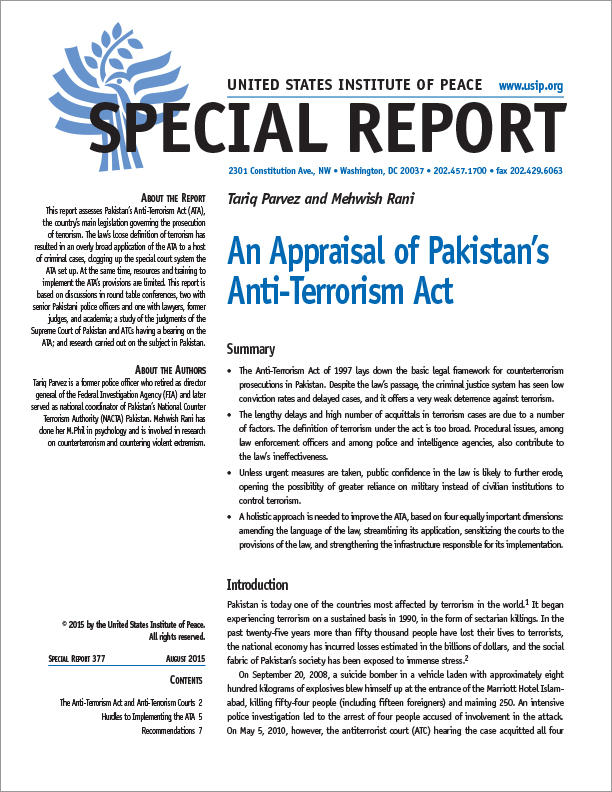Pakistan passed the Anti-Terrorism Act in 1997 in response to the rising threat of terrorism within its borders. The law was designed to help law enforcement combat terrorism. Instead, conceptual difficulties within the law and procedural problems in implementing it have led to an alarmingly high number of acquittals. This report examines the weaknesses in the Anti-Terrorism Act and suggests ways to improve the law and its application to better fight terrorism in Pakistan.
Summary
- The Anti-Terrorism Act of 1997 lays down the basic legal framework for counterterrorism prosecutions in Pakistan. Despite the law’s passage, the criminal justice system has seen low conviction rates and delayed cases, and it offers a very weak deterrence against terrorism.
- The lengthy delays and high number of acquittals in terrorism cases are due to a number of factors. The definition of terrorism under the act is too broad. Procedural issues, among law enforcement officers and among police and intelligence agencies, also contribute to the law’s ineffectiveness.
- Unless urgent measures are taken, public confidence in the law is likely to further erode, opening the possibility of greater reliance on military instead of civilian institutions to control terrorism.
- A holistic approach is needed to improve the ATA, based on four equally important dimensions: amending the language of the law, streamlining its application, sensitizing the courts to the provisions of the law, and strengthening the infrastructure responsible for its implementation.
About the Report
This report assesses Pakistan’s Anti-Terrorism Act (ATA), the country’s main legislation governing the prosecution of terrorism. The law’s loose definition of terrorism has resulted in an overly broad application of the ATA to a host of criminal cases, clogging up the special court system the ATA set up. At the same time, resources and training to implement the ATA’s provisions are limited. This report is based on discussions in round table conferences, two with senior Pakistani police officers and one with lawyers, former judges, and academia; a study of the judgments of the Supreme Court of Pakistan and ATCs having a bearing on the ATA; and research carried out on the subject in Pakistan.
About the Authors
Tariq Parvez is a former police officer who retired as director general of the Federal Investigation Agency (FIA) and later served as national coordinator of Pakistan’s National Counter Terrorism Authority (NACTA) Pakistan. Mehwish Rani has done her M.Phil in psychology and is involved in research on counterterrorism and countering violent extremism.
